This week the Global Health Journal accepted the latest article on female migrant workers from Nepal [1]. The paper is co-authored by Prof. Edwin van Teijlingen in the Centre for Midwifery & Women’s Health as well as by Faculty of Health & Social Sciences Visiting Faculty Prof. Padam, and other Nepalese co-authors are based in the UK and Nepal. Ms. Manju Gurung is co-founder & strategic advisor of POURAKHI Nepal, an Nepal-based organisation supporting ,migrant workers. Dr. Sharada P.Wasti, is based at the University of Greenwich, and he has collaborated with Bournemouth University academics on several previous academic papers on health, work-related migration and human trafficking [2-4].
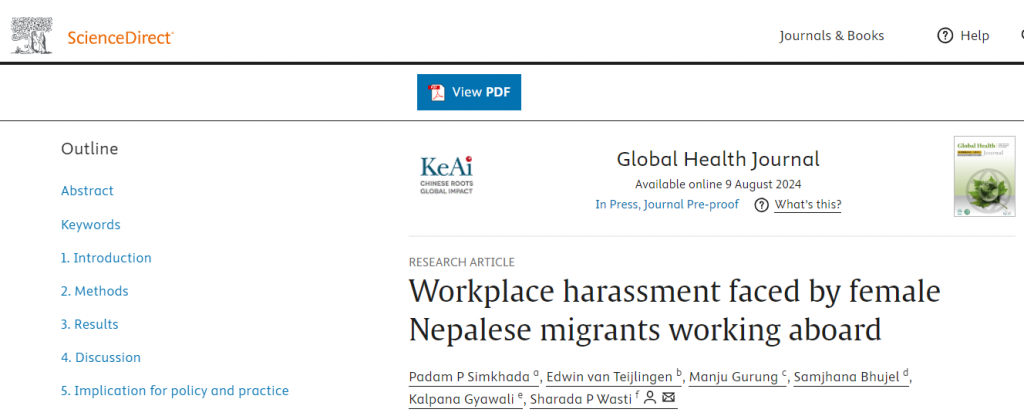
The paper highlights the plight of women working abroad and the problems they encounter destination countries. This study reported in this paper was conducted among 1,889 women who were registered as migrant returnees at an organisation called POURAKHI Nepal. The study extracted and analysed data from this non-governmental organisation that
supports returning female migrant workers in Nepal.
Around half (43.1 %) of the women in the study were 35 or older, 30.9 % were illiterate, and 63.6 % were in their first overseas job. Over one-third (38.5 %) had experienced self-reported workplace harassment. Gender-based violence was a serious problem as physical violence was highly prevalent (68 %), followed by verbal abuse (37.5 %), mental stress (29.7 %), and sexual abuse (14.1 %).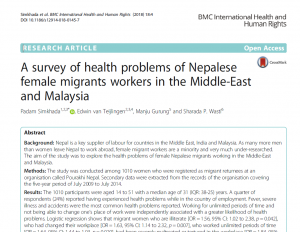
Women who worked abroad with the following characteristics were at the greatest risk: those who were illiterate (adjusted odds ratio [AOR]1.25, 95 % confidence interval [CI]: 1.01 to 1.55), unmarried (AOR 1.27, 95 % CI: 1.05 to 1.56), worked abroad twice or more years (AOR 1.35, 95 % CI: 1.10 to 1.66), changed their place of work (AOR 2.38, 95 % CI: 1.42 to 4.01), lived without documents (AOR 1.24, 95 % CI: 1.03 to 1.50), worked as domestics (AOR 3.56, 95 % CI: 2.03 to 6.23), worked in other than Gulf Cooperation Council (GCC) countries (AOR 1.45, 95 % CI: 1.06 to 1.99), women who did not have a fixed salary (AOR 1.64, 95 % CI: 1.28 to 2.10) and did not receive salary (AOR 3.71, 95 % CI: 2.88 to 4.77) were more likely to be harassed at work.
The authors recommend that the host governments should introduce and enforce policies protecting women in the workplace. Moreover, migrant women should be provided with better information about health risks and hazards as well as how to improve preventive measures in destination countries to reduce workplace harassment.
Prof. Edwin van Teijlingen
Centre for Midwifery & Women’s Health
References:
- Simkhada, P.P., van Teijlingen, E., Gurung, M., Bhujel, S., Wasti, S.P. (2024) Workplace harassment faced by female Nepalese migrants working aboard, Global Health Journal 8(3): 128-132. https://www.sciencedirect.com/science/article/pii/S241464472400040X
- Simkhada, P.P., van Teijlingen, E.R., Gurung, M., Wasti, S. (2018) A survey of health problems of Nepalese female migrants workers in the Middle-East & Malaysia, BMC International Health & Human Rights 18(4): 1-7. http://rdcu.be/E3Ro.
- Simkhada, P., van Teijlingen, E., Sharma, A., Bissell, P., Poobalan, A., Wasti, S.P. (2018) Health consequences of sex trafficking: A systematic review, Journal of Manmohan Memorial Institute of Health Sciences, 4(1): 130-49.
- Regmi, P., Dhakal Adhikari, S., Aryal, N., Wasti, S.P., van Teijlingen, E. (2022) Fear, Stigma and Othering: The Impact of COVID-19 Rumours on Returnee Migrants and Muslim Populations of Nepal, International Journal of Environmental Research & Public Health 19(15), 8986; https://doi.org/10.3390/ijerph19158986
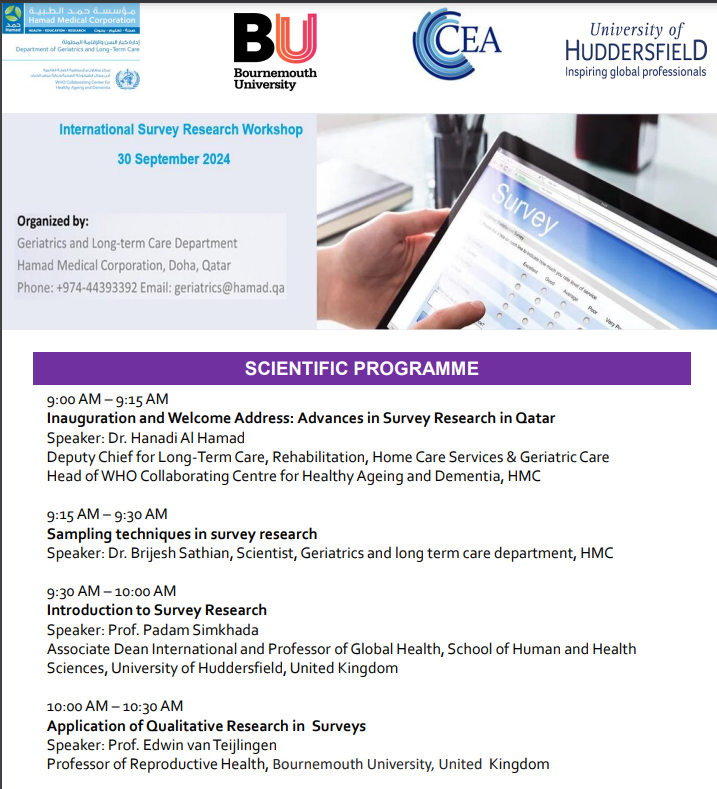
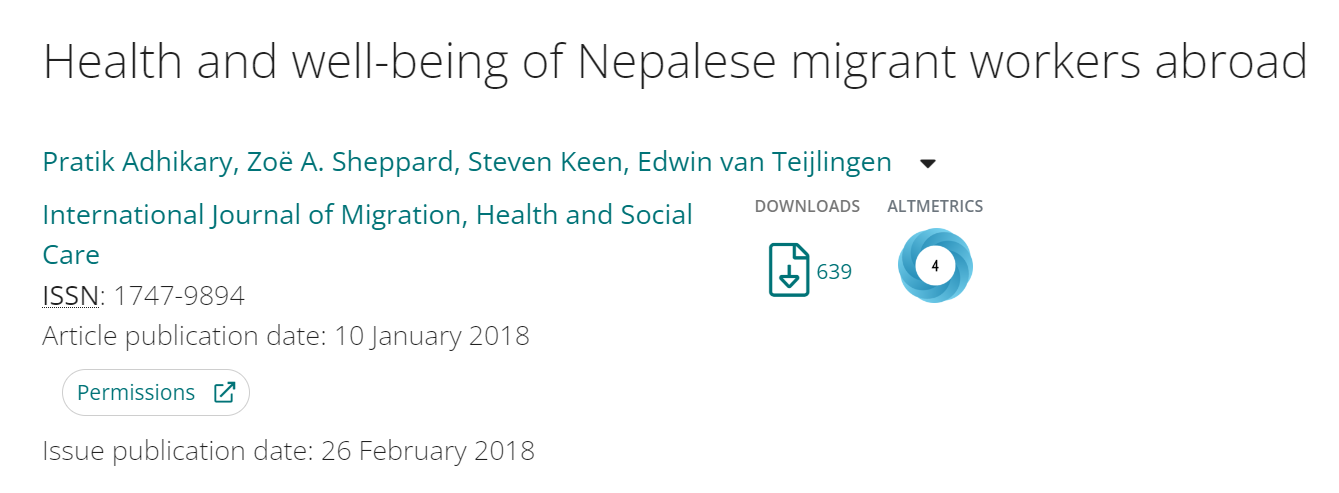
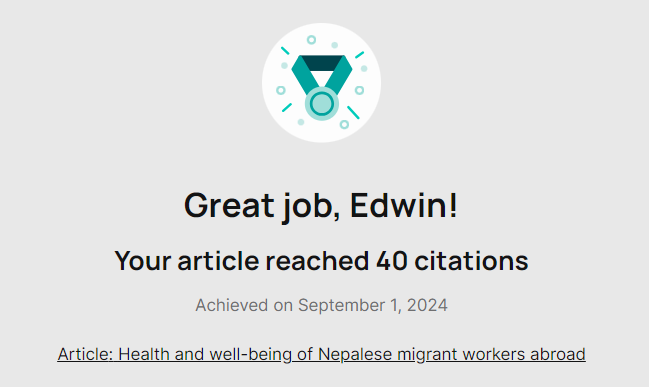




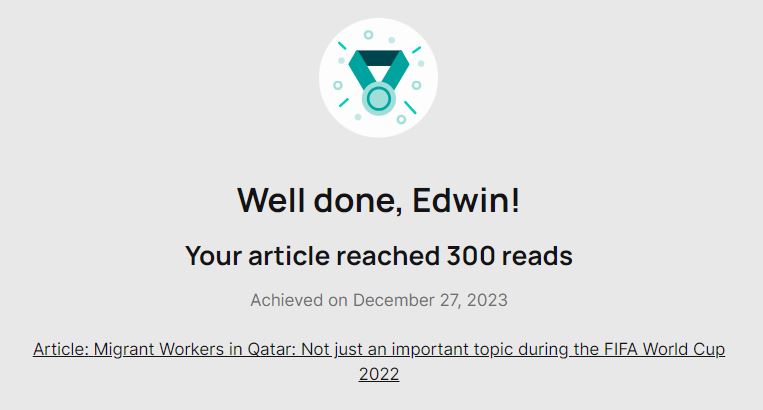

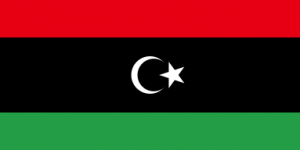
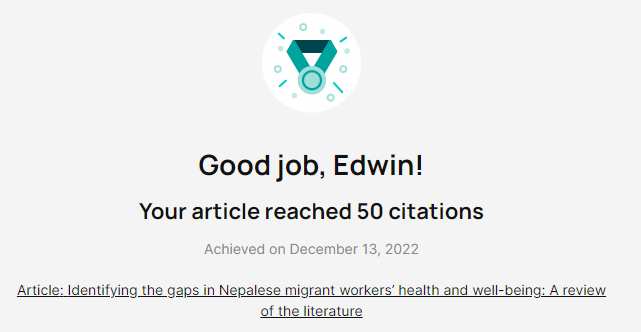


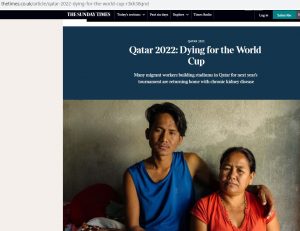

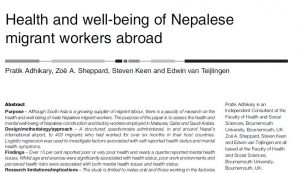

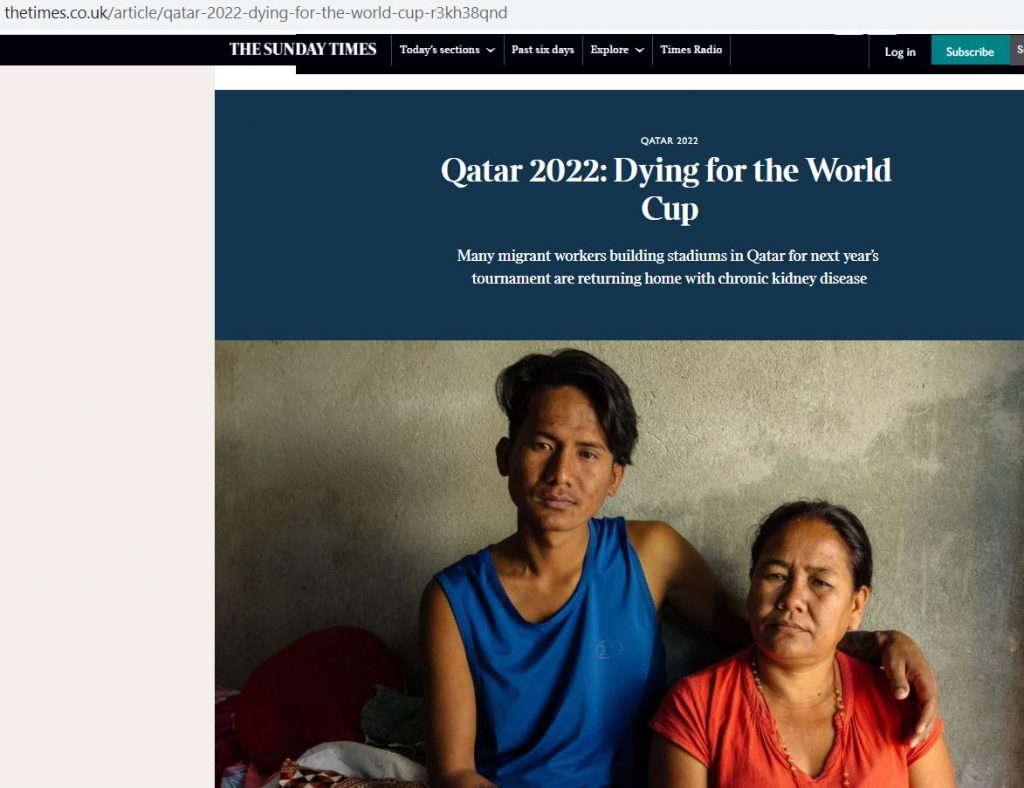
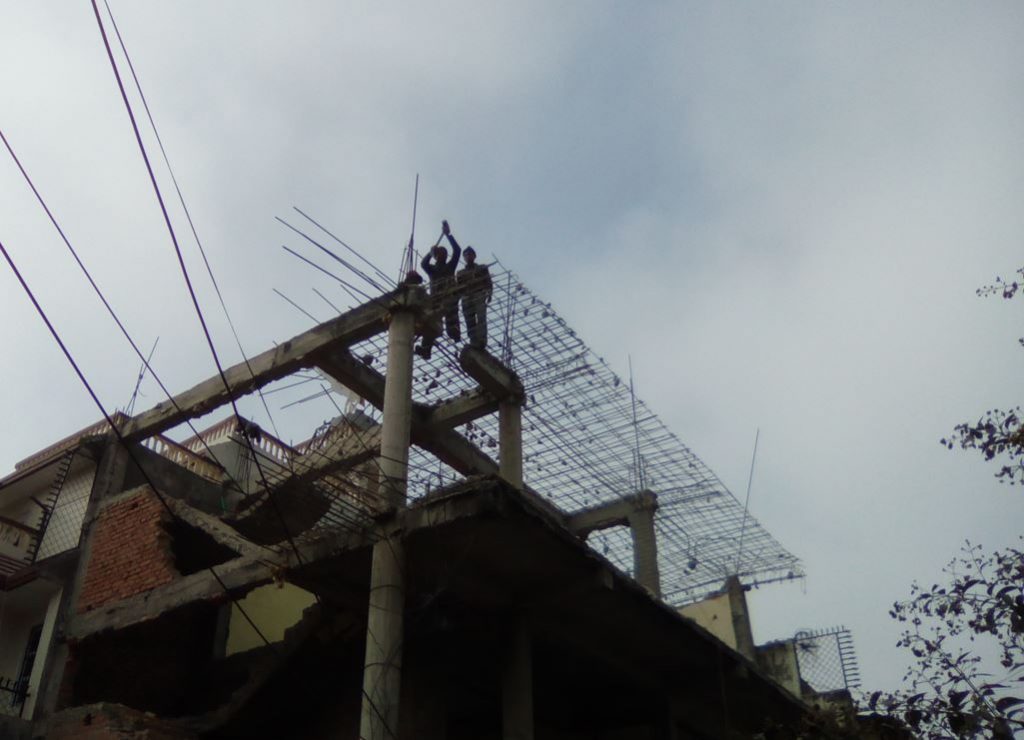

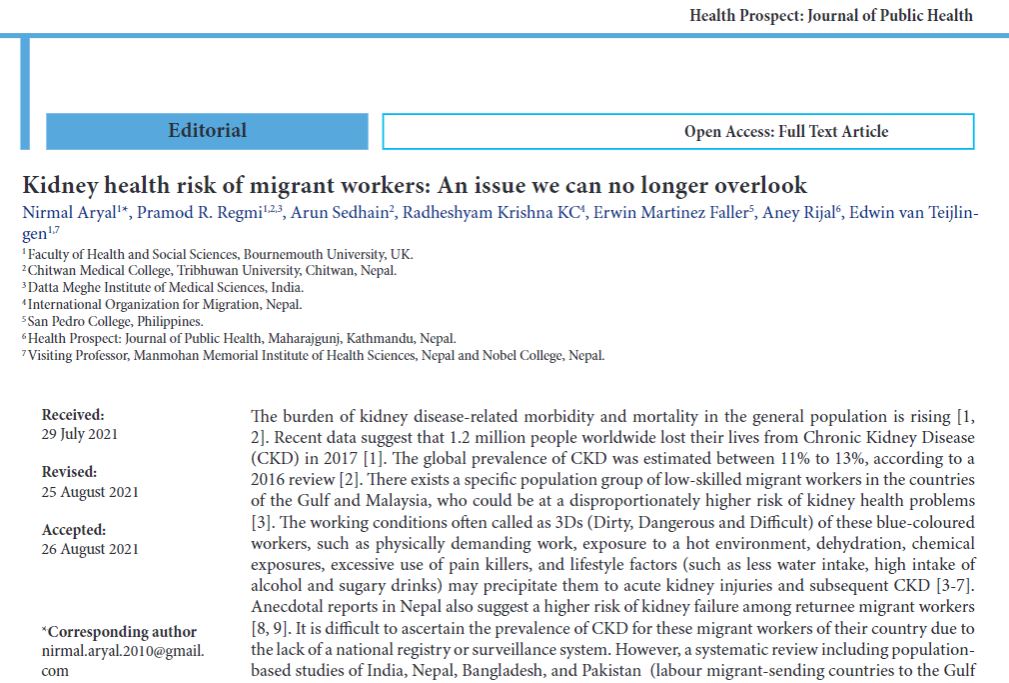
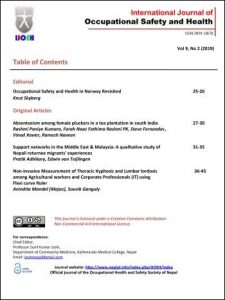
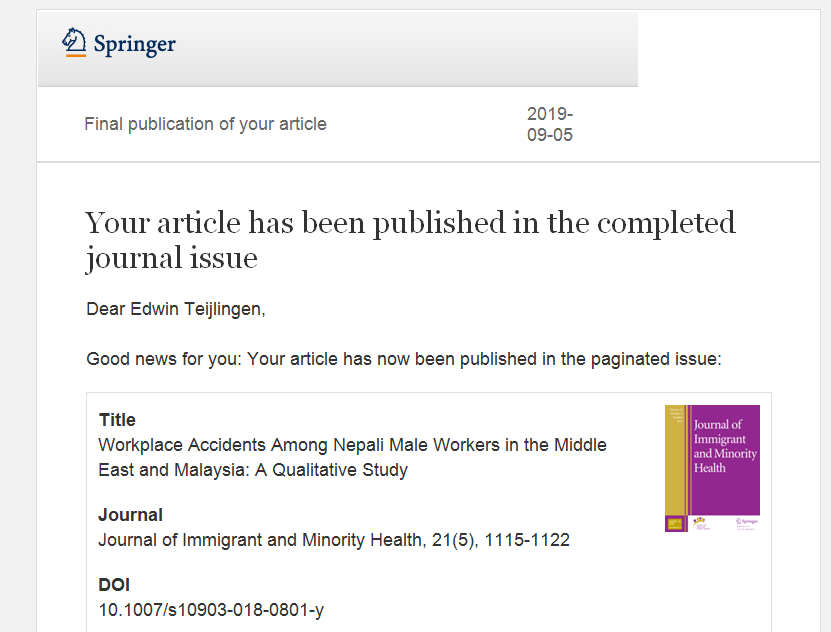
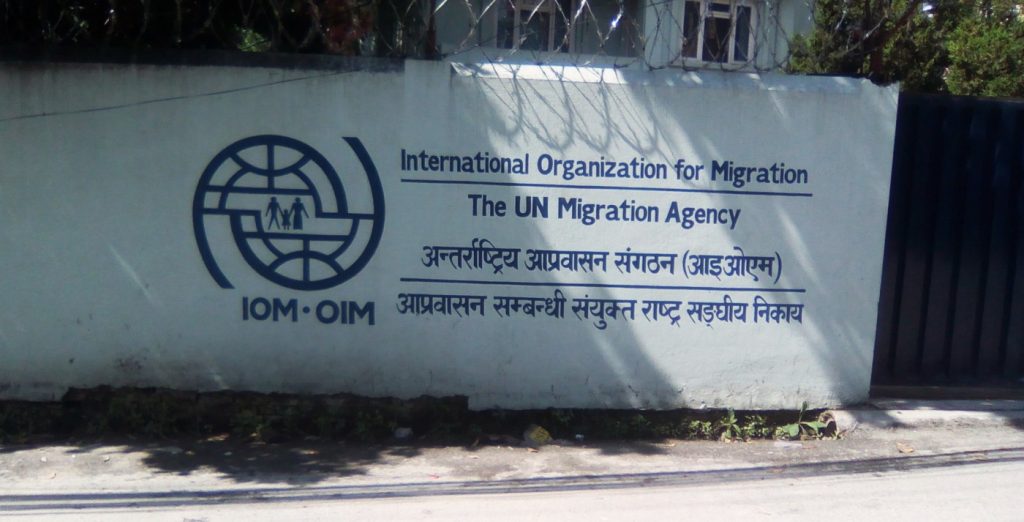
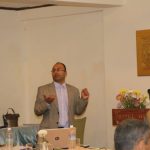
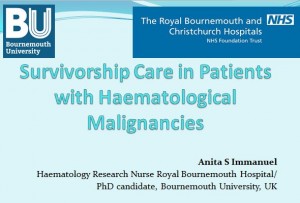












 SPROUT: From Sustainable Research to Sustainable Research Lives
SPROUT: From Sustainable Research to Sustainable Research Lives BRIAN upgrade and new look
BRIAN upgrade and new look Seeing the fruits of your labour in Bangladesh
Seeing the fruits of your labour in Bangladesh Exploring Embodied Research: Body Map Storytelling Workshop & Research Seminar
Exploring Embodied Research: Body Map Storytelling Workshop & Research Seminar Marking a Milestone: The Swash Channel Wreck Book Launch
Marking a Milestone: The Swash Channel Wreck Book Launch ECR Funding Open Call: Research Culture & Community Grant – Application Deadline Friday 12 December
ECR Funding Open Call: Research Culture & Community Grant – Application Deadline Friday 12 December MSCA Postdoctoral Fellowships 2025 Call
MSCA Postdoctoral Fellowships 2025 Call ERC Advanced Grant 2025 Webinar
ERC Advanced Grant 2025 Webinar Update on UKRO services
Update on UKRO services European research project exploring use of ‘virtual twins’ to better manage metabolic associated fatty liver disease
European research project exploring use of ‘virtual twins’ to better manage metabolic associated fatty liver disease